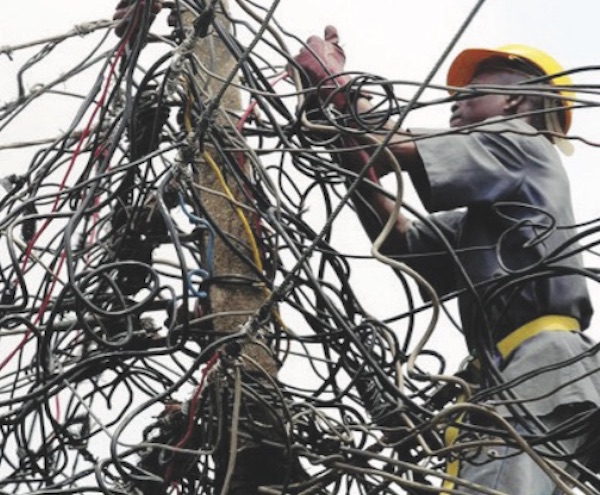A worker on a transmission line Uganda’s ministry of Energy and Mineral Development is scouting for a consultant to draft a legal framework for private investments in the country’s electricity transmission segment, the first of its kind.
The framework is expected to be one of the most anticipated legal documents in Uganda’s energy sector as it will determine how private companies recoup their investments. It is not clear when the ministry of Energy will zero down on a consultant, although sources say the procurement process is at an advanced stage.
In creating space for private investors in the electricity transmission segment, Uganda will break new ground, and relieve the burden the Government-owned Uganda Electricity Transmission Company Limited (UETCL) has shouldered for the last 20 years. The shift in policy could also see a change in the way the regulator sets the electricity tariff for UETCL.
“The transmission tariff for UETCL as determined by ERA has largely been recovering transmission operation and maintenance costs, with limited recovery of capital expenditure/investment-related costs,” according to a March 2020 document compiled by ERA for the development of a framework that allows the participation of private players in the transmission segment.
The change in the setting of the tariff is likely to attract investors into the segment. The Electricity Regulatory Authority in a recent report says Uganda could have more power generated soon, and hence the need for more transmission infrastructure.
THE MEDIUM TERM
“Based on the installed capacity of generation plants (including operational, licensed but still under construction and committed plants), Uganda in the medium term is expected to experience surplus generation of electricity,” ERA writes in a March 2020 report.
The electricity regulator warns that “there is a risk of the planned generation power plants achieving commercial operations date without the requisite evacuation lines in place, thus creating a need for investment in the transmission backbone to facilitate growth in electricity demand and to avert deemed energy payments that would otherwise affect the financial sustainability of the Electricity Supply Industry.”
According to figures from the ministry of Energy, Uganda had 2,989km of electricity transmission network by the first quarter of 2020, higher than the 2,888 during the same time last year. UETCL owns and operates the high voltage transmission grid above 33kV.
On top of managing the transmission network, UETCL also buys power from the grid-connected generators. It then sells that power to the distribution utilities. UETCL sells the […]
